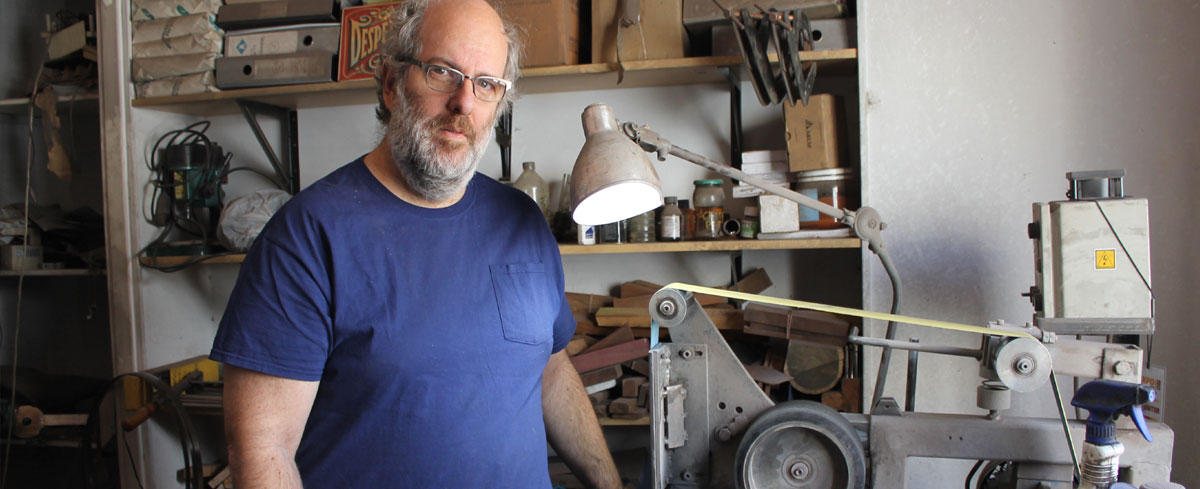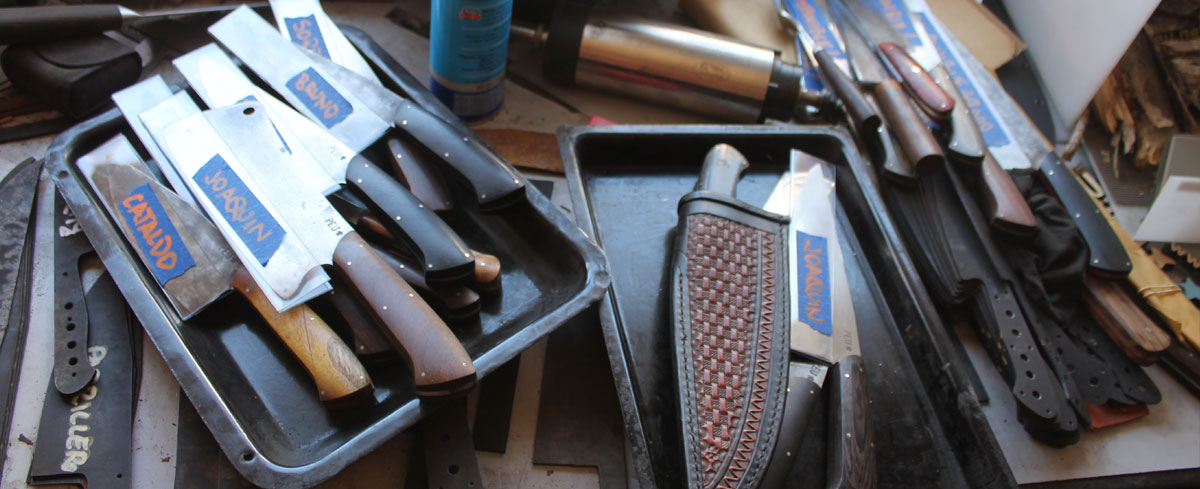Cutting loose in the office
The custom knifemaker who turned his former office into a workshop
An office conversion
Looking beyond the tools and homemade machines sprawled over the desks, Pablo Untroib’s unconventional workshop in Buenos Aires’ busy financial centre begins to betray its former life. Shelves full of ring binders line one wall and folders of old account archives and inventories remain piled up under a film of dust.
This used to be an office like many others in the city’s “microcentro”, an area of banks, multinational companies and political institutions, but after the economic crisis of 2001, Untroib continued to commute from the suburbs every day despite no longer having any employees or any work, and started filling knife blades as a therapeutic way of passing the time. Soon he was learning more, and tools and machinery began to take over the office to the point where he found himself in the unusual position of being a master craftsman working from a central office block.
An artisan who makes his tools
So does he know where everything is? “Nah, not necessarily. That’s not true anymore. I should really tidy up! People are always surprised by a workshop in the centre, and on the fifth floor, but the truth is I had to do something because I’d been coming here for a year to carry on my custom of following a timetable but I had no work. So I decided to bring some blades and I started to do something I enjoyed.”
Creativity runs in the family perhaps. Pablo’s grandfather was the great Porteno filteado artist Leon Untroib, whose work can be seen around the city, including on the underground subte system. From a young age, Untroib always liked making things, and creating machines that make things - he fashioned many of the tools and machines in his workshop - ovens, saws, sanders and other tools - himself. In fact despite his hobby becoming a routine with its own workflows, from designing on the computer to cutting and tempering the steel and making the bezel, he still makes knives to relax. “If I get tired of following my list of work and I want a break, the break for me is not going out for a walk, it’s grabbing a piece of steel - one of the strange imported steels I have lying around, and making a knife for me, not to order,” he says. “My break from making knives is to make knives.”
Sharpening his skills
It took a lot of trial and error to get to this point. “It’s an art in itself,” Untroib says. “My first 30 knives are all either in the trash or in friends’ houses because they were knife-shaped mistakes, but practice makes things come out better each day and I reached the point where I could do what I wanted with the machines and not what the machines wanted.” Now he has a 5-month waiting list for original custom designs and one-off knives posts for sale on his Instagram or Facebook page can sell in a matter of minutes.
Argentina has a strong tradition of ornamental metalwork but Untroib goes for modern design and functional knives for cooking and eating - he counts several major chefs amount his clients - and this connects him to that other great Argentine tradition - the barbecue. “I know there are knives of mine out there that have never seen a cut of meat because they were bought to be added to a collection, but I always tell people to send me photos using them because I like people to use my knives, and there are lots of people who want to invite people to a barbecue and have the best knife there is.”
PEU cuchillos artesanales, Suipacha 834
In Buenos Aires, work and passion often go hand in hand. Discover more Porteño professions.

